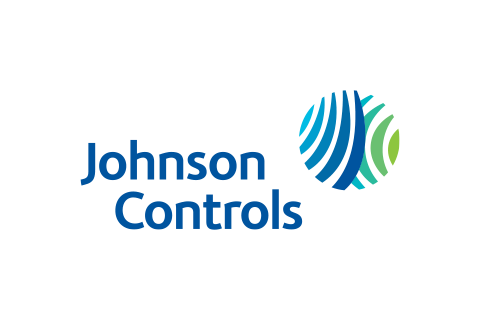Bosch's Bold Move: A Game-Changer in HVAC with $8 Billion Acquisition** **
July 25, 2024, 7:16 pm
**
In a world where climate control is king, Bosch is making waves. The German engineering giant is set to acquire Johnson Controls' global HVAC business for a staggering $8 billion. This strategic maneuver is not just a transaction; it’s a bold leap into the future of heating, ventilation, and air conditioning.
The deal, which has already received the green light from Bosch's shareholders and supervisory board, is expected to close within a year. It encompasses the entirety of Johnson Controls' HVAC solutions for residential and light commercial buildings. This includes a full stake in the Johnson Controls-Hitachi Air Conditioning joint venture, which means Bosch will also take over Hitachi's 40% share.
This acquisition is a game-changer. It positions Bosch to nearly double its sales revenue in the HVAC sector, skyrocketing from €5 billion to €9 billion. The combined entities are projected to generate sales of around €4 billion in 2023 alone. With 12,000 employees spread across 16 manufacturing and 12 engineering sites in over 30 countries, Bosch is not just expanding; it’s fortifying its global footprint.
Stefan Hartung, Bosch's Chairman, sees this as a pivotal moment. The HVAC market is ripe for growth, expected to expand by 40% by 2030. Factors driving this surge include technological advancements, climate change initiatives, and evolving regulations. Bosch aims to seize these opportunities, enhancing its presence in the US and Asia.
The HVAC market is a battleground. Companies are vying for dominance as the demand for energy-efficient solutions grows. Bosch’s acquisition is a strategic play to gain a competitive edge. The HVAC sector is not just about comfort; it’s about sustainability. As the world shifts towards greener technologies, Bosch is positioning itself as a leader in this transformation.
The brands involved in this acquisition are well-known. York and Coleman in the US, along with Hitachi in Asia, will now fall under Bosch’s umbrella. This diverse portfolio allows Bosch to cater to a wide range of customers, from homeowners to businesses. The long-term licensing agreement for Hitachi products ensures that Bosch can leverage existing brand equity while introducing innovative solutions.
Christian Fischer, Bosch's Deputy Chairman, emphasizes the growth potential. The integration of Johnson Controls' HVAC business will accelerate Bosch's expansion plans. The synergy between the two companies promises to unlock new avenues for innovation and customer satisfaction. This is not just about numbers; it’s about creating a powerhouse in the HVAC industry.
The implications of this acquisition extend beyond mere financial metrics. It reflects a broader trend in the industry. As electric vehicles gain traction, automotive manufacturers are diversifying their portfolios. Bosch, traditionally known for its automotive components, is now making significant strides in the HVAC sector. This move is a testament to the company’s adaptability and foresight.
The acquisition also underscores the importance of strategic partnerships. In a landscape where collaboration can lead to exponential growth, Bosch’s ability to secure this deal amidst competition speaks volumes. The company outmaneuvered other contenders, showcasing its commitment to expanding its market share.
Regulatory approvals are the final hurdle. While the deal is expected to close within 12 months, the path is not without challenges. Navigating the complexities of international business requires finesse. However, Bosch’s track record suggests it is well-equipped to handle these intricacies.
The HVAC market is evolving. Consumers are becoming more conscious of energy consumption and environmental impact. Bosch’s acquisition aligns with this shift. By integrating Johnson Controls' expertise, Bosch can offer cutting-edge solutions that meet the demands of modern consumers.
The future looks bright for Bosch. This acquisition is not just a financial investment; it’s a strategic alignment with global trends. As the company embarks on this new chapter, it will likely redefine its role in the HVAC landscape.
In conclusion, Bosch's $8 billion acquisition of Johnson Controls' HVAC business is a bold statement. It signifies a commitment to growth, innovation, and sustainability. As the HVAC market continues to expand, Bosch is poised to emerge as a leader. This move is more than a business transaction; it’s a strategic pivot towards a greener, more efficient future. The HVAC industry is about to witness a transformation, and Bosch is at the helm.
In a world where climate control is king, Bosch is making waves. The German engineering giant is set to acquire Johnson Controls' global HVAC business for a staggering $8 billion. This strategic maneuver is not just a transaction; it’s a bold leap into the future of heating, ventilation, and air conditioning.
The deal, which has already received the green light from Bosch's shareholders and supervisory board, is expected to close within a year. It encompasses the entirety of Johnson Controls' HVAC solutions for residential and light commercial buildings. This includes a full stake in the Johnson Controls-Hitachi Air Conditioning joint venture, which means Bosch will also take over Hitachi's 40% share.
This acquisition is a game-changer. It positions Bosch to nearly double its sales revenue in the HVAC sector, skyrocketing from €5 billion to €9 billion. The combined entities are projected to generate sales of around €4 billion in 2023 alone. With 12,000 employees spread across 16 manufacturing and 12 engineering sites in over 30 countries, Bosch is not just expanding; it’s fortifying its global footprint.
Stefan Hartung, Bosch's Chairman, sees this as a pivotal moment. The HVAC market is ripe for growth, expected to expand by 40% by 2030. Factors driving this surge include technological advancements, climate change initiatives, and evolving regulations. Bosch aims to seize these opportunities, enhancing its presence in the US and Asia.
The HVAC market is a battleground. Companies are vying for dominance as the demand for energy-efficient solutions grows. Bosch’s acquisition is a strategic play to gain a competitive edge. The HVAC sector is not just about comfort; it’s about sustainability. As the world shifts towards greener technologies, Bosch is positioning itself as a leader in this transformation.
The brands involved in this acquisition are well-known. York and Coleman in the US, along with Hitachi in Asia, will now fall under Bosch’s umbrella. This diverse portfolio allows Bosch to cater to a wide range of customers, from homeowners to businesses. The long-term licensing agreement for Hitachi products ensures that Bosch can leverage existing brand equity while introducing innovative solutions.
Christian Fischer, Bosch's Deputy Chairman, emphasizes the growth potential. The integration of Johnson Controls' HVAC business will accelerate Bosch's expansion plans. The synergy between the two companies promises to unlock new avenues for innovation and customer satisfaction. This is not just about numbers; it’s about creating a powerhouse in the HVAC industry.
The implications of this acquisition extend beyond mere financial metrics. It reflects a broader trend in the industry. As electric vehicles gain traction, automotive manufacturers are diversifying their portfolios. Bosch, traditionally known for its automotive components, is now making significant strides in the HVAC sector. This move is a testament to the company’s adaptability and foresight.
The acquisition also underscores the importance of strategic partnerships. In a landscape where collaboration can lead to exponential growth, Bosch’s ability to secure this deal amidst competition speaks volumes. The company outmaneuvered other contenders, showcasing its commitment to expanding its market share.
Regulatory approvals are the final hurdle. While the deal is expected to close within 12 months, the path is not without challenges. Navigating the complexities of international business requires finesse. However, Bosch’s track record suggests it is well-equipped to handle these intricacies.
The HVAC market is evolving. Consumers are becoming more conscious of energy consumption and environmental impact. Bosch’s acquisition aligns with this shift. By integrating Johnson Controls' expertise, Bosch can offer cutting-edge solutions that meet the demands of modern consumers.
The future looks bright for Bosch. This acquisition is not just a financial investment; it’s a strategic alignment with global trends. As the company embarks on this new chapter, it will likely redefine its role in the HVAC landscape.
In conclusion, Bosch's $8 billion acquisition of Johnson Controls' HVAC business is a bold statement. It signifies a commitment to growth, innovation, and sustainability. As the HVAC market continues to expand, Bosch is poised to emerge as a leader. This move is more than a business transaction; it’s a strategic pivot towards a greener, more efficient future. The HVAC industry is about to witness a transformation, and Bosch is at the helm.

